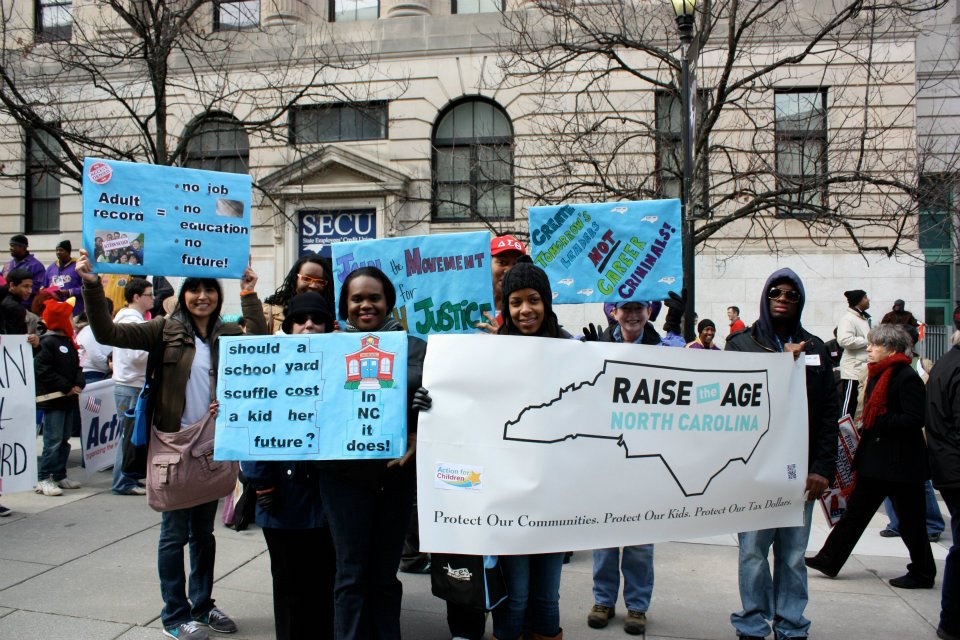NC considers ending policy that funnels minors into adult prisons

If passed, HB280 would "raise the age" so fewer minors would be funneled directly into the adult criminal justice system in North Carolina. (Photo from the Raise the Age North Carolina Facebook page.)
Minors sentenced to adult prisons are five times more likely to experience sexual assault than those in juvenile detention facilities. They are 36 times more likely to commit suicide. And an estimated 80 percent of youth incarcerated at adult prisons are unable to be fully rehabilitated due to a lack of tailored programs and are caught in a cycle of recidivism.
To combat these problems, states have adopted "Raise the Age" laws to stop automatically prosecuting 16- and 17-year-olds as adults. When New York passed such legislation last week, North Carolina became the only state where 16- and 17-year-olds are automatically funneled into the adult criminal justice system. But a bipartisan bill now being considered by the North Carolina legislature could raise the age there as well.
The Juvenile Justice Reinvestment Act (House Bill 280) was introduced last month by Republican state Reps. Chuck McGrady, David Lewis and Susan Martin and Democrat Duane Hall, who has championed such legislation in the past. Cosponsored by an additional 65 House members from both parties, it passed its first reading and is now awaiting action in the House Judiciary Committee.
Many of the bill's proponents point to its economic advantages. For instance, the N.C. Department of Public Safety states in support of the bill, "Though raising the age of juvenile jurisdiction carries a short-term price-tag, it promises a long-term economic benefit to North Carolina. Much of this comes from the 7.5 percent reduction in recidivism when teens are adjudicated in the juvenile vs. the adult system."
Other supporters emphasize the bill's racial justice benefits. "If you look at the number of convictions and the number of kids tried as adults, there's a great disparity as far as African American youth," said state Rep. Rodney Moore, a Democratic cosponsor.
In North Carolina, 62 percent of the youth prosecuted in the adult criminal system are Black, and Black youth are nine times more likely than their white counterparts to receive an adult prison sentence, as attorney and former White House Domestic Policy Council deputy assistant Roy L. Austin Jr. noted in an op-ed published in The Hill.
However, there are concerns about a loophole in the North Carolina bill that would still allow youth charged with violent felonies to be tried as adults. Because studies have shown that youth are more susceptible to peer pressure, have weaker impulse control and are less likely to perceive the full consequences of their actions, some advocates believe they should not be subjected to the adult criminal justice system no matter how severe their offense.
"Raise the Age" legislation has failed in North Carolina in the past despite support across the political spectrum, from left-leaning groups including the American Civil Liberties Union to conservative groups like the John Locke Foundation. But proponents of HB280 are hopeful it will pass this year because even traditional opponents like prosecutors and police have taken up the cause.
They include Mecklenburg County Sheriff Irwin Carmichael. "I believe that raising the age in North Carolina would help steer young people away from a life potentially spent in the criminal justice system," he said.
Tags
Rebekah Barber
Rebekah is a research associate at the Institute for Southern Studies and writer for Facing South.
